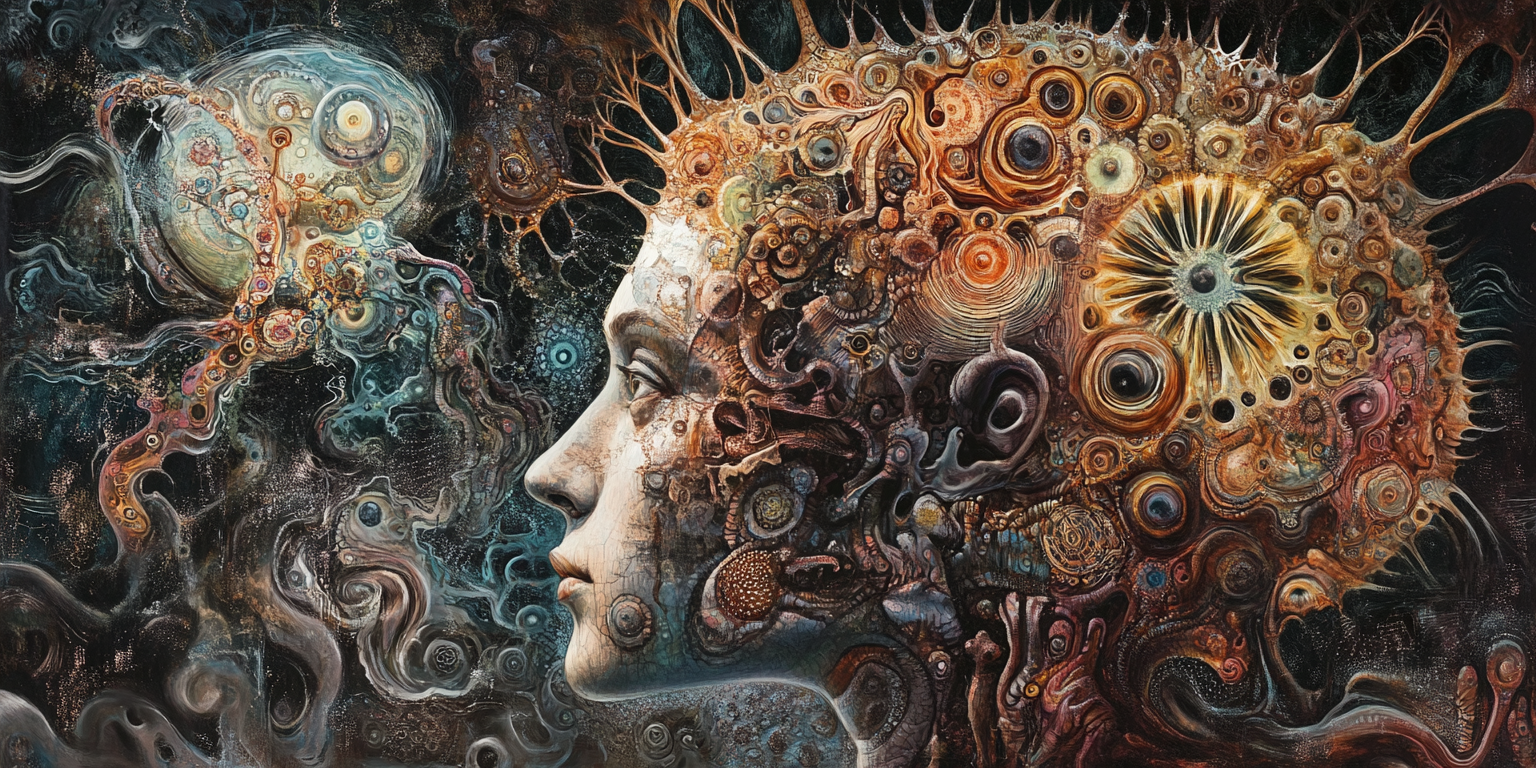Humans have always sought knowledge, driven by an insatiable curiosity that compels us to explore, learn, and question. From ancient civilizations charting the stars to modern scientists probing the quantum world, our relentless desire to understand our surroundings defines us uniquely among Earth’s creatures. Unlike most animals, whose curiosity fades with maturity, humans maintain a lifelong drive to ask questions, investigate the unknown, and build increasingly sophisticated layers of understanding.
This persistent curiosity is not merely an abstract trait; it is deeply embedded in our biology and culture. Human civilization itself is shaped profoundly by this ongoing quest—our science, technology, art, and philosophy are all manifestations of a collective impulse to uncover truth and expand the boundaries of our knowledge. But what exactly drives this continuous pursuit? Is it simply evolutionary advantage, a practical tool for survival, or something more profound, rooted in our very nature?
In this article, I will delve into these questions, exploring biological, philosophical, and cultural explanations for why humans seek knowledge. By understanding this fundamental human impulse, we gain deeper insight into ourselves, our history, and the trajectory of our collective future.
Biological and Evolutionary Perspectives
From a biological standpoint, humans exhibit a remarkable trait known as neoteny—the retention of juvenile characteristics into adulthood. Unlike many species, which transition sharply from playful and exploratory juveniles into focused, survival-oriented adults, humans preserve youthful attributes like curiosity, adaptability, and a tendency toward learning throughout their lifespan. This extended curiosity has likely offered significant evolutionary advantages, facilitating continuous innovation, adaptation, and improved problem-solving capabilities.
Interestingly, humans share this neotenous trait with certain other species, notably the naked mole rat (Heterocephalus glaber). Naked mole rats, colony-forming mammals known for their complex social structures, retain juvenile physical and behavioral characteristics throughout their adult lives. This extended juvenility contributes to their exceptional longevity and social cooperation, highlighting a possible link between lifelong curiosity and advanced social organization.
Other species, such as dolphins and elephants, also exhibit high levels of intelligence and sustained curiosity well into adulthood. Dolphins, for instance, display ongoing playful and exploratory behaviors, using complex communication and problem-solving skills that support sophisticated social networks. Similarly, elephants demonstrate lifelong learning and social complexity, passing down crucial knowledge through generations. These examples suggest that sustained curiosity and prolonged cognitive flexibility may be linked to social complexity and survival advantages across different species.
The evolutionary benefit of continuous curiosity seems clear: by maintaining an exploratory and flexible mindset, humans and similarly intelligent species can adapt more effectively to changing environments, devise innovative solutions, and thrive in diverse ecological niches. Therefore, our lifelong curiosity may not only be a defining trait but also a crucial element of our evolutionary success.
Philosophical Perspectives on Knowledge-Seeking
Philosophers around the world have long explored why humans seek knowledge, examining diverse motivations and varied understandings of knowledge itself. Multiple philosophical traditions, from East to West, offer distinct yet interconnected insights into this essential human endeavor.
Aristotelian Epistemology: Practical vs. Theoretical Knowledge
Aristotle categorized knowledge into two main forms: practical (praxis) and theoretical (theoria). Practical knowledge relates to action—skills and insights that aid daily living. Theoretical knowledge, pursued for intrinsic intellectual fulfillment, includes disciplines like mathematics, philosophy, or pure science. Aristotle argued humans inherently desire to understand their world, motivated both by the practical necessity of acting effectively and by the deeper satisfaction derived from intellectual contemplation.
Empiricism vs. Rationalism: Sensory Experience Versus Innate Reason
In Western philosophy, the debate between empiricism and rationalism highlights contrasting views about the source of knowledge. Empiricists, such as John Locke and David Hume, assert that knowledge primarily emerges from sensory experiences and empirical evidence. This perspective frames the quest for knowledge as a continuous effort to comprehend and predict the world based on direct observations. Rationalists, including René Descartes and Immanuel Kant, contend that certain knowledge is innate or achievable through reason alone, independent of sensory experience. They view the pursuit of knowledge as deeply rooted in our intellectual nature, driven by a desire to uncover universal truths through logical reasoning.
Eastern Philosophical Traditions: Confucianism, Taoism, and Buddhism
Asian philosophical traditions offer further depth to our understanding of knowledge-seeking. Confucianism emphasizes moral and ethical knowledge, believing humans seek understanding to cultivate personal virtue and harmonious social relations. Knowledge, in Confucian thought, is closely tied to practical wisdom and ethical living. Taoism, on the other hand, encourages intuitive knowledge gained through harmony with nature, advocating that true understanding emerges from aligning oneself with the natural order rather than explicit analytical thinking. Buddhism views the pursuit of knowledge as instrumental to achieving enlightenment and liberation from suffering, placing strong emphasis on inner experience and mindful reflection as pathways to deeper understanding.
Pragmatism: Knowledge as a Practical Tool
Developed by philosophers such as William James, Charles Sanders Peirce, and John Dewey, pragmatism underscores the practical utility of knowledge. Pragmatists suggest that humans pursue knowledge primarily because it is useful for solving real-world problems, improving living conditions, and adapting effectively to their environment. Knowledge is valued based on its practical applications and the tangible benefits it provides, reflecting an inherently human desire for effective interaction and improvement of their surroundings.
Existentialism: Knowledge and the Search for Meaning
Existential philosophers like Søren Kierkegaard, Friedrich Nietzsche, and Jean-Paul Sartre perceive knowledge-seeking as integral to an individual’s pursuit of meaning and authenticity in a seemingly indifferent or absurd universe. For existentialists, seeking knowledge is fundamentally linked to understanding one’s own existence, identity, and purpose. Knowledge thus becomes a deeply personal quest, uniquely reflecting an individual’s confrontation with questions of meaning, identity, and the human condition.
These varied philosophical traditions from around the globe collectively highlight the complexity and richness of humanity’s pursuit of knowledge, underscoring both its universal appeal and diverse interpretations.
The Cultural and Societal Impact of Our Search for Knowledge
Humanity’s relentless pursuit of knowledge transcends cultural boundaries and has profoundly shaped societies worldwide, driving significant advancements in science, technology, art, philosophy, and social structures. Across all civilizations, this enduring quest has spurred periods of great innovation, transformation, and interconnectedness.
Science and Technology
Scientific curiosity and technological innovation have universally propelled societies forward. Ancient civilizations, including China, India, Egypt, and Mesopotamia, laid foundational knowledge in fields such as mathematics, astronomy, medicine, and engineering. Chinese contributions, such as papermaking, printing technology, gunpowder, and the compass, fundamentally shaped global technological advancement. Indian scholars introduced the concept of zero and significant developments in mathematics and astronomy, which later spread through the Arab world and into Europe. The Islamic Golden Age produced critical scientific advancements in optics, medicine, algebra, and astronomy, influencing global scientific discourse profoundly. These diverse traditions have collectively led to the modern era’s technological breakthroughs, from medicine and transportation to digital technology and space exploration.
Art and Philosophy
The search for knowledge has been equally transformative in global arts and philosophy. Ancient civilizations such as Greece, India, China, Persia, and Africa developed rich philosophical traditions that continue to influence contemporary thought. Greek philosophy, Indian philosophy including Buddhism and Vedanta, Confucian and Taoist thought in China, and various philosophical schools in the Islamic world have provided foundational intellectual frameworks for societies worldwide. Artistic traditions from the intricate sculptures of ancient India and the calligraphy and poetry of East Asia to the expressive visual arts of indigenous cultures in Africa and the Americas reflect humanity’s diverse expressions of understanding, creativity, and interpretation of the world.
Social Structures
Humanity’s quest for understanding has greatly influenced social and political systems globally. Confucianism shaped social harmony, governance, and ethics throughout East Asia, while Islamic philosophy influenced jurisprudence, governance, and social ethics across the Middle East and beyond. Indigenous cultures in the Americas, Africa, and Oceania developed complex social systems rooted in deep ecological knowledge and community cohesion. Enlightenment principles of individual liberty and democratic governance significantly impacted modern political structures globally, resonating far beyond their European origins and shaping contemporary global human rights movements.
Historical Examples
Globally, the pursuit of knowledge has repeatedly spurred societal transformations. The ancient Silk Road facilitated unprecedented cultural exchanges and knowledge transfer between Asia, the Middle East, Africa, and Europe, reshaping economies, cultures, and societies. The Industrial Revolution, originating in Europe, rapidly spread worldwide, dramatically transforming economies, urbanization, and social structures globally. More recently, the digital revolution has profoundly impacted global communication, education, and cultural exchange, reinforcing the interconnectedness of societies across the world.
Ultimately, humanity’s quest for knowledge has been a universal force, continually reshaping cultural identities, social structures, and our collective global civilization. It reflects an intrinsic human drive, shared across diverse cultures, to explore, understand, and innovate.
Critiques and Limitations
While humanity’s pursuit of knowledge has undeniably driven remarkable advancements, this quest is not without significant critiques and limitations. Historically and contemporarily, our search for knowledge raises profound ethical dilemmas, sometimes resulting in unintended harmful consequences and complex global challenges.
Questioning the Positive Outcomes of Knowledge
Critics argue that the relentless pursuit of knowledge does not always lead to beneficial outcomes. Knowledge can be misused or misunderstood, leading to detrimental consequences for societies and the environment. Historical examples highlight these risks clearly; nuclear technology, initially developed from scientific curiosity and the quest for energy solutions, also led to devastating weapons. Similarly, rapid industrialization and technological advancement have significantly contributed to environmental degradation and climate change, presenting a global crisis of sustainability.
Ethical Dilemmas and Destructive Uses of Knowledge
Emerging fields like genetic engineering, artificial intelligence, and biotechnology present complex ethical challenges. Genetic manipulation, for example, offers incredible potential in medicine and agriculture but also raises concerns about bioethics, equity, and unforeseen ecological impacts. Artificial intelligence, while transformative, introduces risks concerning privacy, autonomy, and employment displacement.
Furthermore, knowledge acquisition is often intertwined with power dynamics. Technological disparities can exacerbate inequalities between regions and within societies, perpetuating cycles of poverty and marginalization. This highlights the ethical necessity to ensure equitable access to knowledge and its benefits.
Global Perspectives and Potential Solutions
Addressing these critiques requires thoughtful and proactive global strategies that extend beyond merely banning new technologies. One approach involves fostering inclusive, international dialogues to develop ethical frameworks guiding the responsible use of knowledge and technology. Institutions like UNESCO and international ethics boards could facilitate this global governance, ensuring diverse cultural and societal perspectives inform decisions about technology deployment and scientific research.
Investment in global education and public awareness campaigns can also empower communities worldwide, promoting informed discourse about technological advancements and their implications. Equipping societies with the capacity for critical thinking and ethical decision-making fosters responsible stewardship of knowledge.
In addition, interdisciplinary collaboration across cultural and national boundaries can ensure a holistic understanding of potential impacts, promoting innovations that align with global ethical standards and sustainable development goals.
Ultimately, while recognizing the limitations and potential risks inherent in the pursuit of knowledge, embracing global collaboration, ethical foresight, and inclusive governance can help humanity harness knowledge responsibly and beneficially.
Personal Perspective
For me, the pursuit of knowledge represents more than just an intellectual exercise; it is a fundamental aspect of what it means to be human. Throughout my own journey, I have found that seeking knowledge brings profound intrinsic satisfaction—a kind of joy and fulfillment that few other experiences match. It is the process of discovery itself, rather than simply the accumulation of facts, that makes learning truly rewarding.
I believe that knowledge-seeking remains vital precisely because it continuously reshapes our understanding of the world and ourselves. Each new insight or discovery opens further pathways for exploration, fostering an ongoing cycle of curiosity and learning. This relentless quest for understanding has the unique power to inspire personal growth, cultivate empathy through deeper understanding of others, and enhance our appreciation of the complexity and beauty inherent in the universe.
Moreover, engaging in the pursuit of knowledge fosters humility and openness. The more I learn, the more I recognize the vastness of what remains unknown, reinforcing a sense of humility and wonder. This awareness encourages openness to diverse perspectives and collaborative approaches, which are crucial in navigating the complex global challenges we face today.
In essence, the human satisfaction derived from understanding, learning, and discovery enriches life profoundly, making the pursuit of knowledge not merely beneficial but essential to personal fulfillment and collective advancement.
Conclusion: An Endless Journey
Throughout this exploration, I have tried to uncover the multifaceted nature of humanity’s relentless pursuit of knowledge. Rooted deeply in our biological predispositions, exemplified by traits like neoteny, humans maintain lifelong curiosity and adaptability, distinguishing us from many other species. Philosophical traditions from diverse global cultures highlight different motivations for knowledge-seeking—ranging from practical survival to the quest for existential meaning. Our pragmatic necessity to solve real-world problems has driven innovation, shaping the cultural and societal frameworks of civilizations across the globe.
Yet, beyond these pragmatic or philosophical motivations lies a deeper, intrinsic human drive. Seeking knowledge defines who we are—it fuels personal growth, cultural evolution, and societal advancement. This continuous journey is characterized by both remarkable achievements and profound challenges, highlighting the responsibility we bear in managing knowledge ethically and sustainably.
Ultimately, our endless pursuit of knowledge represents both our greatest strength and our most profound responsibility. It is this unending curiosity and passion for discovery that will continue to shape our collective future, guiding humanity forward into new horizons of understanding and possibility.


